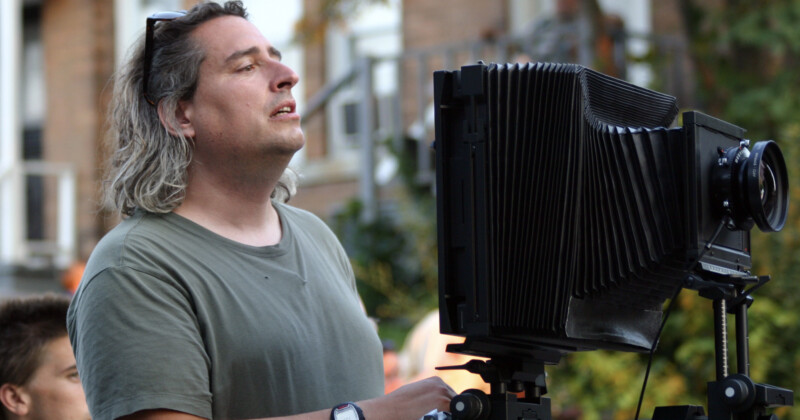Gregory Crewdson Might Be Making a Feature Film

Photographer Gregory Crewdson says that he may be directing his first feature-length movie in a new interview.
In his three-and-a-half decades long career, American photographer Gregory Crewdson has become celebrated for his large-scale and cinematic images of suburbia.
Crewdson is known to work with large production teams to scout and shoot his photographs — in a way that is not indifferent to the process of making a feature-length motion picture.
In an interview with Vanity Fair on Wednesday, Crewdson revealed he might be making the move from photography to cinema and that his first film may be in the works.
When asked about whether he had ever toyed with the idea of making a feature-length film, Crewdson answers: “We are in the process of it.”
However, Crewdson says he acknowledges the difficulty of translating skills from still photography to filmmaking. He thinks this is especially challenging because his still photographs already blur the line between photography and cinema.
“The challenging thing if it ever comes to life will be how to bring everything I learned as a still photographer into that arena,” Crewdson tells Vanity Fair.
“But there’s this, I’m highly aware also that my still photographs occupy this very interesting or unusual intersection between still pictures and movie making.
“I define that kind of little terrain a little bit, so it would be a challenge. But challenges are good.”
In the interview with Vanity Fair, Crewdson discussed some of the films and directors that have had an impact on his art. He named Steven Speilberg and David Lynch, who directed Blue Velvet and Twin Peaks as two major influencers in his work.
“There’s certain films that you see when you’re coming of age as an artist—the music you listen to, the movies you watch, the photography, whatever it is—and those become the urtext. Those are the gigantic things that follow you for the rest of your life,” Crewdson says.
“So for me, it was [David] Lynch, but it was also [Steven] Spielberg and so many movies.
“The films that find this intersection between ordinary life and theatricality is the thing that I’m most interested in in my own work, and I think it’s reflected in the movies and the art, [Edward] Hopper and [Diane] Arbus and [John] Cheever, all those people that I feel connected to.”
Image credits: Header photo licensed via Wikimedia Commons.